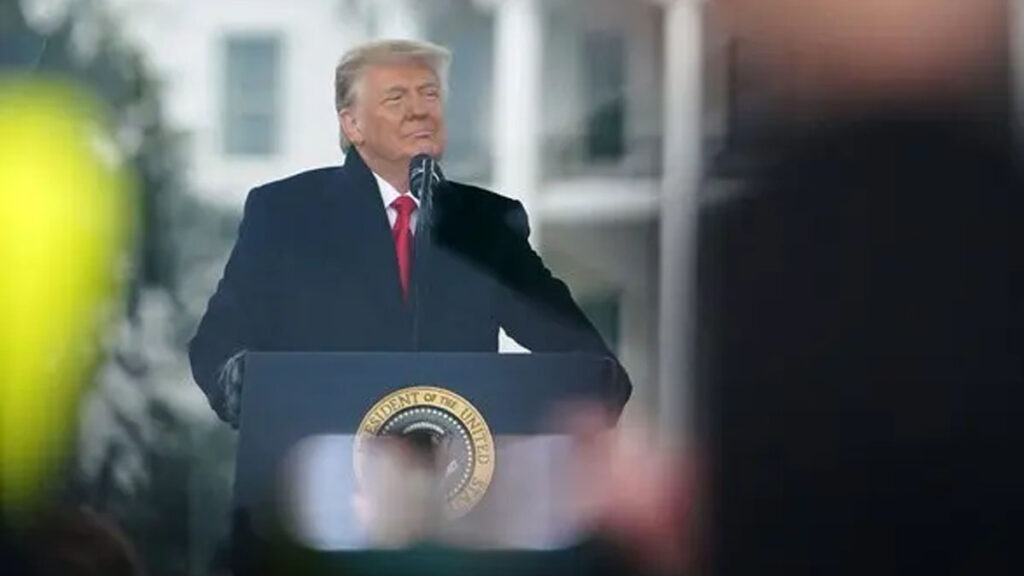The hysterical left is at it again. This time it is their hyper and largely mendacious reaction to the Supreme Court immunity decision. Let us make one thing perfectly clear. The Supreme Court did NOT grant total immunity to presidents. Presidents have always had a degree of immunity. The Court did not make presidents immune from prosecution for criminal actions unrelated to official duties. Presidents can even be prosecuted for actions not relating to the presidency if prosecutors can overcome the initial presumption of innocence.
According to the hair-on-fire crowd on the left, presidents are like all other citizens in terms of the law. There was no immunity from prosecution. And now – thanks to the high court– presidents have total immunity from any crimes committed while in office. Both sides of that narrative are false.
Presidents have long had a level of immunity from prosecution under the Constitution and the law for actions taken in conjunction with their official duties as President of the United States. They could be criminally prosecuted for crimes unrelated to official responsibilities – and that is still the case.
Presidents cannot – and never could – be sued or indicted while in office. Otherwise, partisan prosecutors would have the President in court all the time. The remedy for criminal conduct or abuse of power is impeachment (indictment) by the House and conviction (removal from office) by the Senate. Once out of office, a President can be pursued for civil and criminal actions by the courts.
The history of impeachment is telling. President Andrew Johnson was impeached for removing a cabinet member. While presidents had the power to appoint, it was not clear that they could remove after a person had been approved by the Senate. Johnson was not removed by the Senate – and subsequent court cases established the right of a President to fire a Cabinet member at will.
In the case of President Nixon, he resigned prior to the inevitability of his impeachment and removal from office. His crime was covering up a burglary. He could have – and probably would have — stood trial on that charge had President Ford not pardoned him.
President Clinton was impeached not for his affair with a young intern but for lying about it under oath – perjury. In his case, the crime was not covered by presidential immunity against eventual prosecution, the Senate did not feel it rose to the level warranting removal from office. Subsequently, Clinton pled guilty to perjury and lost his law license.
Some argue that the Clinton impeachment was based more on politics than merit and lowered the bar for future impeachments. That seems to have been borne out by the two impeachments of President Trump. The first was over the accusation that he improperly threatened to withhold aid to Ukraine – which was not at war at the time – for information on possible illegal activities by Hunter Biden in his association with the corrupt Burisma Holdings energy company.
It is unlikely that Trump could ever have been tried on any criminal charge because (1) his actions were not criminal in a legal sense and (2) that uncovering high level international corruption by an American citizen is arguably within the realm of a president’s official duties. That impeachment was clearly politics over merit.
While much more dramatic, the second impeachment followed the same pattern. Trump was accused of taking illegal actions to overthrow the election through insurrection. That is an accusation and political narrative, but not something that was tested in court at the time. Conversely, Trump contends that it was in his duties as President to ensure an honest count in the election. Like it or not, Trump has a defense argument to be made. Notably, Special Counsel Jack Smith has never charged Trump with insurrection although the media throws that term around as if it is a fact.
What the Supreme Court did do was to do what it is supposed to do. It took the ambiguity out of the issues relating to a President’s susceptibility to prosecution for alleged crimes involving his presidential duties or outside his presidential duties.
We have to understand that the issue was never no immunity or total immunity. All nine justices recognized the existence of a level of presidential immunity. They disagreed on the scope and legal requirements to pursue cases against a president.
As is too often the case these days, the response to the court’s decision is hyperbolic fearmongering – to the point of hysteria — advanced as a political narrative, No … the Supreme did not make a president a king.
So, there ‘tis.
